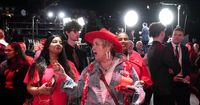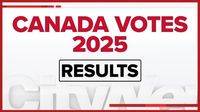On April 28, 2025, voters in Ottawa and across Canada made their choices in a pivotal federal election, marking a significant shift in the political landscape. The results reveal a decisive victory for the Liberal Party, led by former Bank of Canada head Mark Carney, who successfully captured the Nepean riding.
As the polls closed and ballots were counted, results streamed in, showcasing the intense competition across various ridings. In Nepean, Mark Carney emerged victorious, while in Carleton, Conservative Leader Pierre Poilievre faced a challenging race. With a staggering 91 candidates on the ballot, the Carleton riding became a focal point of the election, highlighting the growing demand for change among voters.
Carleton, traditionally a Conservative stronghold, saw an unprecedented surge in advance voting, with 43,394 of the riding's 105,091 eligible voters participating in early polls. This enthusiasm for change was echoed by Liberal challenger Bruce Fanjoy, who campaigned vigorously, knocking on tens of thousands of doors and raising over $100,000 in the early weeks of his campaign. "People want change in Carleton," Fanjoy stated, reflecting the sentiments of many constituents.
As results unfolded, it became clear that the two federal leaders’ debates had a significant impact on voter sentiment. Carney's performance, in particular, resonated with many, as he presented a vision for economic recovery amidst the uncertainties posed by external pressures, including U.S. President Donald Trump’s tariffs. A year ago, the Conservatives appeared poised to lead a majority government, but their fortunes changed dramatically as public concerns about affordability and housing took center stage.
At Poilievre's election night watch party, emotions ran high as supporters gathered in anticipation of a Conservative victory. However, as the results rolled in, the mood shifted dramatically. Many attendees, clad in shirts emblazoned with "Pierre Poilievre for Prime Minister," were left subdued and tearful when the Liberal victory was declared. Poilievre had represented Carleton for over 20 years, and his loss was particularly poignant for his supporters. "We believe the country is desperately in need of change, and Poilievre represents that change," a supporter lamented.
Fanjoy’s campaign was marked by grassroots mobilization, with dedicated volunteers like June and Bob Neske, former Conservative voters, who shifted their support after Carney's leadership announcement. Bob expressed his belief that electing an experienced economist like Carney was essential for navigating the current economic landscape. "We realized we can win this riding," he said, reflecting the newfound hope among many voters.
The election also saw significant wins for the Liberals in other Ottawa ridings. In Kanata, Jenna Sudds secured her seat, while Marie-France Lalonde triumphed in Orléans. Yasir Naqvi won in Ottawa Centre, David McGuinty in Ottawa South, and Mona Fortier in Ottawa—Vanier—Gloucester. Anita Vandenbeld also retained her seat in Ottawa West—Nepean, further solidifying the Liberal presence in the region.
Despite the Liberal successes, the election was not without its challenges. The Carleton riding's unusually large number of candidates created logistical nightmares, with Elections Canada warning that results could be delayed due to the extensive ballot counting required. The Longest Ballot Committee's protest, which aimed to highlight the need for electoral reform, resulted in many candidates who did not actively campaign, adding to the confusion.
Benjamin Firth, a resident in the Carleton riding, voiced his frustration over the protest's impact on voter turnout. "The long wait made me feel like my voice and right to vote has no value over their disgruntled election opinion," he said, reflecting the sentiments of many frustrated voters.
As the night progressed, CBC News projected winners in 18 of the 20 local ridings, with no seats changing parties outside of Ottawa. The election results not only reflect the shifting political dynamics in Canada but also underscore the increasing engagement of voters in the electoral process.
With the Liberals holding onto a majority of seats in the Ottawa area, the election results signal a new chapter in Canadian politics. The focus now turns to how the newly elected government will address the pressing issues facing Canadians, including economic recovery, housing affordability, and the ongoing challenges posed by international relations.
As the dust settles on this election, the voices of the voters will undoubtedly shape the future of Canada, as they continue to demand accountability and change from their elected representatives.





